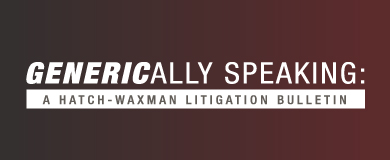- Acumen Powered by Robins Kaplan LLP®
- Affirmative Recovery
- American Indian Law and Policy
- Antitrust and Trade Regulation
- Appellate Advocacy and Guidance
- Business Litigation
- Civil Rights and Police Misconduct
- Class Action Litigation
- Commercial/Project Finance and Real Estate
- Corporate Governance and Special Situations
- Corporate Restructuring and Bankruptcy
- Domestic and International Arbitration
- Entertainment and Media Litigation
- Health Care Litigation
- Insurance and Catastrophic Loss
- Intellectual Property and Technology Litigation
- Mass Tort Attorneys
- Medical Malpractice Attorneys
- Personal Injury Attorneys
- Telecommunications Litigation and Arbitration
- Wealth Planning, Administration, and Fiduciary Disputes
Acumen Powered by Robins Kaplan LLP®
Ediscovery, Applied Science and Economics, and Litigation Support Solutions
-
April 15, 2024Robins Kaplan Named to 2024 BTI Client Service A-Team
-
April 9, 2024Robins Kaplan LLP Files Complaint Against Social Media Giants Meta, Snap, TikTok on Behalf of Spirit Lake Nation, Menominee Indian Tribe of Wisconsin
-
April 8, 2024Tara Sutton, Emily Tremblay Shortlisted for Euromoney’s Women in Business Law Awards
-
April 24, 2024IP Leadership Executive Summit
-
April 24, 2024IP Odyssey: Navigating the Latest Developments in Intellectual Property Law
-
April 30, 2024Navigating Generational Dynamics
-
March 2024e-Commerce: Pitfalls and Protections
-
March 22, 2024‘In re Cellect’:
-
March 14, 2024How Many Cases Have You Tried to a Verdict?
-
September 16, 2022Uber Company Systems Compromised by Widespread Cyber Hack
-
September 15, 2022US Averts Rail Workers Strike With Last-Minute Tentative Deal
-
September 14, 2022Hotter-Than-Expected August Inflation Prompts Massive Wall Street Selloff
Find additional firm contact information for press inquiries.
Find resources to help navigate legal and business complexities.
Eli Lilly & Co. v. Teva Parenteral Medicines, Inc.
Indirect infringement is present when the patient and prescribing information describe all claimed steps.
October 15, 2015

Case Name: Eli Lilly & Co. v. Teva Parenteral Medicines, Inc., Civ. No. 10-cv-1376-TWP, 2015 U.S. Dist. LEXIS 112221 (S.D. Ind. Aug. 25, 2015) (Pratt, J.)
Drug Product and Patents-in-Suit: Alimta® (pemetrexed disodium); U.S. Patent No. 7,772,209 ("the '209 patent")
Nature of the Case and Issue(s) Presented: This case presented the issue of when indirect infringement can be established in light of the new case law from the Federal Circuit. Alimta is a chemotherapy drug that is prescribed to be used with vitamins. The ‘209 patent claims several methods of using Alimta in various combinations with vitamins.
Eli Lilly argued that Teva indirectly infringed the claims because the patient and prescribing information directed the patient to take Alimta with various dosage levels of vitamins. The patent states that using Alimta with vitamins allows the patient to obtain the benefit of the claimed method to reduce potentially life-threatening toxicities.
Teva argued that indirect infringement cannot be found because there was no evidence that patients actually took the vitamin with Alimta. Further, Teva argued that it does not direct or control the patient or that such actions are attributable to the physician.
The district court ruled that Eli Lilly had shown, by the preponderance of the evidence, that Teva indirectly infringed the '209 patent.
Why Eli Lilly Prevailed: The district court determined that, based on the recent Federal Circuit authority, the question before the court was whether the physicians directs or controls the acts of the patient in such manner as to participate in an activity or receipt of a benefit. The court found that the evidence presented was that physicians controlled the actions of the patients to utilize Alimta with the requisite level of vitamins as claimed in the patent in order for the patient to receive the benefit of reducing toxicities associated with Alimta.
The district court rejected Teva’s argument that there was no evidence that patients actually took the requisite level of vitamins because the patient and prescribing information made it clear that taking the vitamins was important to receive the full benefits of Alimta. Further, the court determined that non-infringement cannot be established by the mere possibility that one of the claimed steps may not be performed.
Related Publications
Related News
If you are interested in having us represent you, you should call us so we can determine whether the matter is one for which we are willing or able to accept professional responsibility. We will not make this determination by e-mail communication. The telephone numbers and addresses for our offices are listed on this page. We reserve the right to decline any representation. We may be required to decline representation if it would create a conflict of interest with our other clients.
By accepting these terms, you are confirming that you have read and understood this important notice.
